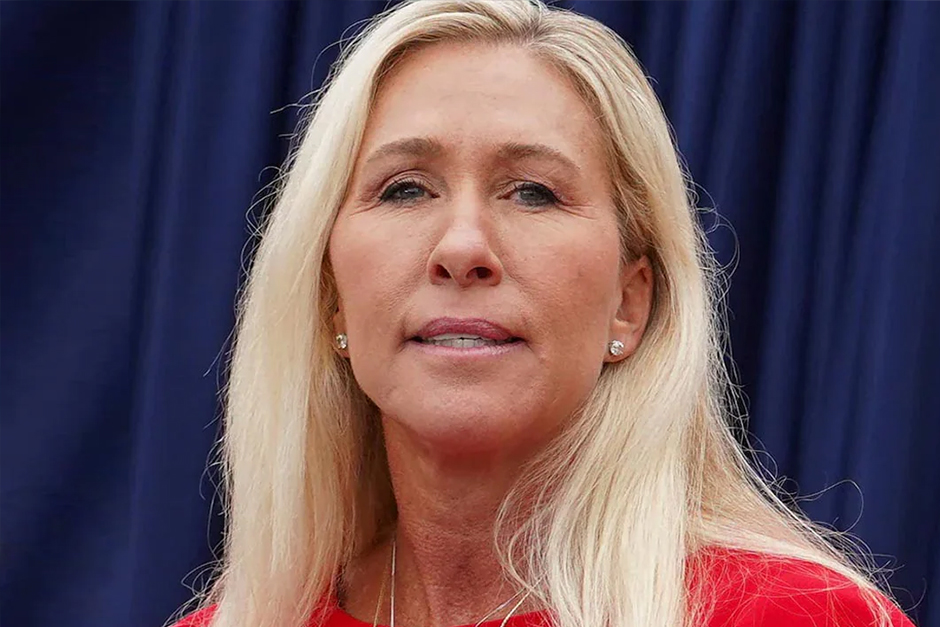A seismic shift has rippled through American politics as Marjorie Taylor Greene, a prominent and often controversial Republican figure known for her staunch alignment with the Make America Great Again (MAGA) movement, unexpectedly announced her resignation from the U.S. House of Representatives. Representing Georgia’s 14th congressional district, Greene’s departure leaves a significant void and ignites fervent speculation across political spectrums, both within the United States and among international observers, including a keenly watching India.
The announcement came via a brief statement released by her office late Monday, citing a desire to “explore new avenues for effective change” and focus on “broader national engagement” beyond the confines of legislative work. This abrupt exit from Capitol Hill by one of the most visible faces of the conservative populist wing of the Republican Party has sent shockwaves, prompting urgent questions about the future trajectory of the MAGA movement and the internal dynamics of the GOP ahead of a pivotal election year.
The Sudden Departure and its Immediate Aftermath
Greene’s resignation was delivered with little prior indication, catching even close political observers off guard. While the statement alluded to a strategic redirection of her activism, specific details regarding her immediate plans remain scarce. This sudden void in Georgia’s 14th district will necessitate a special election, drawing immediate attention to a historically conservative stronghold that has become a battleground for intra-party ideological struggles.
The immediate aftermath has seen a flurry of reactions. Supporters have expressed disappointment but also understanding, interpreting her move as a potential step towards a more influential role outside of Congress, perhaps in media or grassroots organizing. Critics, meanwhile, are dissecting the timing, some suggesting internal party pressures or a recognition of limited legislative efficacy. For the Indian diaspora in the U.S., many of whom closely follow American political developments, Greene’s departure signifies not just a change in one congressional seat, but potentially a broader recalibration within the Republican Party, whose policies can have indirect impacts on immigration, trade, and geopolitical relations, areas of particular interest to Indian-Americans.
A Polarizing Figure’s Legacy
Marjorie Taylor Greene burst onto the national political scene with a distinctive, confrontational style that quickly made her a household name. Elected in 2020, she rapidly established herself as a vocal advocate for former President Donald Trump’s agenda and a staunch critic of perceived liberal overreach. Her tenure was marked by strong rhetoric, challenges to election integrity, and a willingness to engage in highly publicized confrontations, often leveraging social media to amplify her message directly to her base.
Her legislative career, while not characterized by significant bill passage, was undeniably impactful in shaping discourse. She championed conservative social causes, questioned government mandates, and became a figurehead for a segment of the electorate feeling disenfranchised by mainstream politics. Her removal from congressional committees early in her first term due to controversial past statements underscored the deep divisions she both highlighted and exacerbated within the House. Yet, her ability to fundraise significantly and maintain a fervent base of support demonstrated her enduring appeal to a segment of Republican voters.
Commenting on her impact, Dr. Rhea Sharma, a political commentator based in New Delhi, noted, “Greene’s departure is significant not for the legislative holes it leaves, but for the ideological vacuum it might create within the vocal populist wing. She mastered the art of political theatre in the social media age, making her an indispensable voice for many. Her exit could either allow new, perhaps more tempered, voices to emerge, or it could intensify the scramble for leadership among the hardline conservatives.”
What This Means for the Republican Party and 2024
Greene’s resignation introduces a new layer of complexity into an already tumultuous Republican landscape. Her influence extended beyond her district, making her a national figure who could galvanize segments of the MAGA base. Her absence will undoubtedly be felt, and questions immediately arise about who, if anyone, will step into that highly visible role.
For the Republican Party as a whole, this moment presents both challenges and opportunities. Will her departure allow for a more unified message, or will it create further infighting among factions vying for leadership of the conservative populist movement? Her independent and often uncompromising stance sometimes put her at odds even with party leadership. Therefore, some within the GOP might secretly welcome the chance to present a more cohesive front.
Looking ahead to the crucial 2024 elections, Greene’s exit might prompt a re-evaluation of campaign strategies. While her presence often drew media attention, it also provided ammunition for opponents to paint the party with a broad brush. Her shift from legislative combatant to potentially a broader, more independent political activist could still allow her to influence races and shape narratives, albeit from a different platform. Her next steps will be closely watched by those trying to decipher the evolving nature of American conservatism and its impact on the upcoming presidential and congressional contests.
In conclusion, Marjorie Taylor Greene’s unexpected resignation is more than just a congressional vacancy; it’s a profound moment that reflects the ongoing ideological wrestling within the Republican Party and the broader American political ecosystem. As the dust settles, the ramifications of this decision will undoubtedly shape political discourse and strategy in the months leading up to the 2024 elections, drawing keen attention from global observers, including India, on the future direction of one of the world’s most influential democracies.




